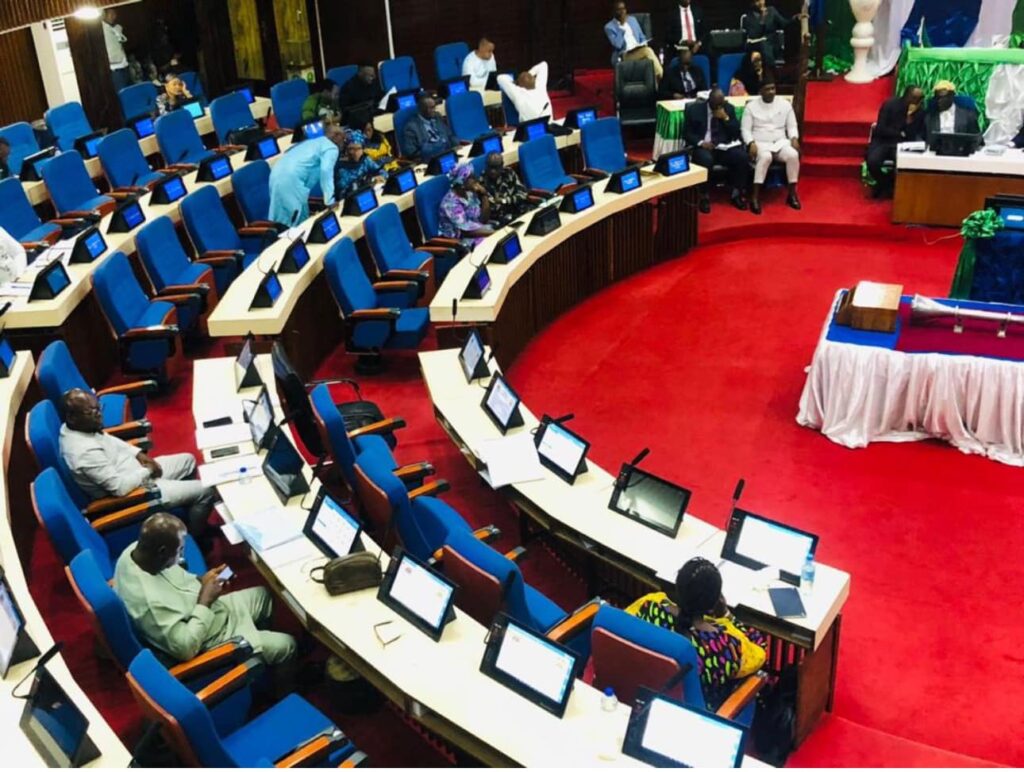
By: Abdul Razack Gbla
The Parliament of Sierra Leone on Tuesday, July 16, 2024, unanimously approved nine Presidential nominees, including Mr. Daniel Kaitibie, who will now serve as the Executive Director of the Sierra Leone Maritime Administration. This approval followed the presentation of the eighteenth report by the Committee on Appointments and Public Service, highlighting a bright moment in the nation’s governance.
The Committee on Appointments and Public Service, chaired by Honorable Mathew Sahr Nyuma, began its proceedings on Thursday, July 11, 2024. The sessions were well-attended by committee members representing various political factions and districts.
The proceedings opened with each nominee subscribing to an oath or affirmation as required by the 1991 Constitution. The nominees then presented their qualifications, vision, and plans for their prospective roles. Mr. Daniel Kaitibie, among others, eloquently outlined his commitment to public service, emphasizing his willingness to transform the Sierra Leone Maritime Administration.
Honorable Mathew Sahr Nyuma and committee members engaged in rigorous questioning of the nominees. They probed into the nominees’ policy positions, past experiences, and capabilities to fulfill their roles. The questions covered a broad range of topics, including economic policies, national strategies, and proposed reforms.

The committee demonstrated thorough diligence, ensuring that only the most qualified individuals would be entrusted with these critical positions.
After extensive deliberations, Honorable Mathew Sahr Nyuma presented Mr. Daniel Kaitibie and the other nominees to the parliamentary plenary for approval. During the debate, members carefully considered each nominee’s qualifications, integrity, and alignment with national priorities.
In a decisive and unanimous vote, the Parliament of Sierra Leone approved Mr. Daniel Kaitibie and eight other Presidential nominees on Tuesday, July 16, 2024. This approval demonstrates an important step in strengthening the nation’s governance by placing capable leaders in key administrative roles.



